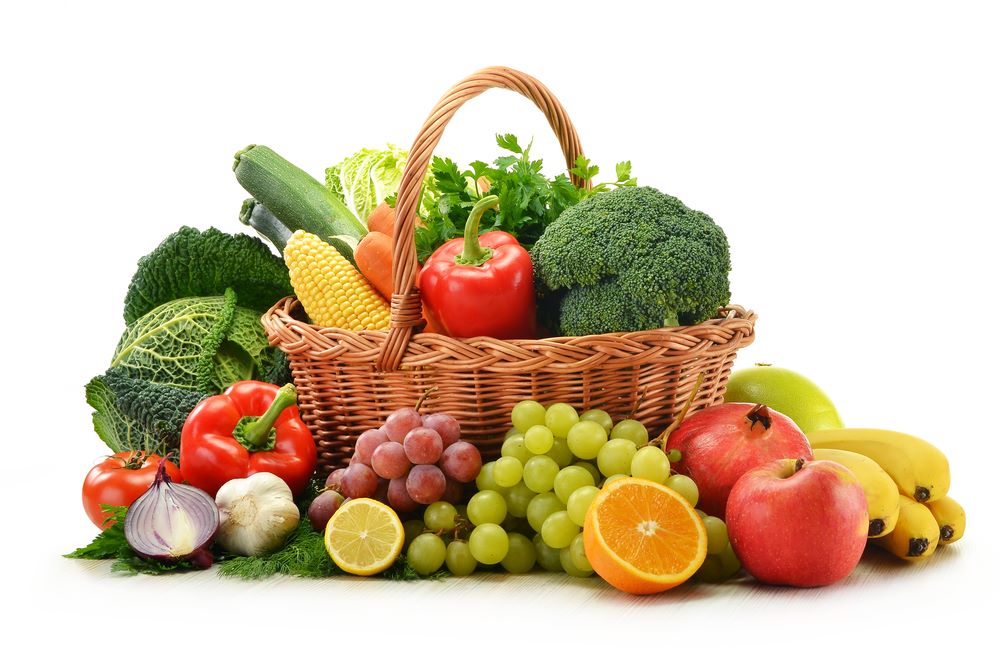No products in the cart.
Effective weight-loss plan
First and foremost, it is necessary to understand the definition of the effective weight-loss plan. It is a method for reducing excess fat and regaining a slim body without any adverse health impacts. This should be kept in your mind so that the final goals of the weight-loss journey which are young, healthy and beautiful could be achieved.
The following 10 principles for a healthy diet are based on findings by scientists, health and nutrition organizations.

1. Natural foods as a priority
A healthy nutrition plan is a reasonable combination of foods and drinks amount. It should be noted that nutrient density is not only connected to the calories. Select plant-based foods that provide various health benefits.
2. Vegetables and fruits
It is recommended to have at least 5 portions of vegetables and fruits per day – preferably fresh or short-cooked foods or juices and smoothies. Fresh fruits and vegetables are the suppliers of essential vitamins, minerals and fibers – all of them provide energy and enable to reduce the risk of illnesses caused by poor nutrition.

3. Edible seeds
Cereals, macaroni, and rice provide valuable carbohydrates such as Vitamin B, minerals, fibers, and phytochemicals. A daily serving of 30 grams normally is recommended in order to boost digestion, maintain weight and reduce the risk of selective diseases.
4. Products from milk, eggs, meat, and fish group
Milk, yogurt, cheese provide protein, calcium, phosphorus, and Vitamin A. Eggs provide fats and vitamins. Meat and fish are the suppliers of various vitamins (B1, B6, and B12). Saltwater fish provide iodine, selenium, and omega-3 fatty acids. As a portion of a healthy diet, the intake of 300 – 600 grams (10 – 20 ounces) of meat per week is highly recommended.
5. Cut back on animal products
Fat causes the increase in fatty acids and various fat-soluble vitamins such as A, D, E, and K. Fat is especially high in calories; hence, excessive consumption of fat will cause obesity. Additionally, excessive saturated fatty acids can increase the risk of lipometabolic disorders as a possible consequence of cardiovascular diseases.
Vegetable oils (e.g. olive oil, canola oil, and sunflower seed oil) that provide unsaturated fat are considered a healthy option. Fat is available in fast-food and sweeties. A daily serving of 60 to 80 grams (approximately 2 ounces) of fat is usually recommended by nutritionists.
6. Moderate salt and sugar intake
Sugar from fruits and vegetables are healthier, but sugar-added products will be detrimental to your overall health. Salt is an essential nutrient for daily intake, but excessive consumption will cause adverse impacts. You should be creative to season your foods with herbs and spices instead of salt.
7. Liquid foods as a priority
An average daily serving of 1,5 liters (approximately 50 ounces) of liquids is the required amount for an adult. Therefore, high-quality mineral water with the natural alkaline pH level like Miocen natural mineral water is highly recommended for easier digestion, effective functions of cells and low calories intake.
8. Food processing for a short time
Processing foods for a short time to retain food’s natural appearance, keep nutrients less metabolized, and maintain the inherent deliciousness of the food.
9. Enjoy the meal
In modern life that everyone is always in a rush, it is pointed out by scientists that taking time to enjoy the meal will remind them of better control of their eating portion and make them more satisfied.
10. Regular exercise
The combination of a healthy diet and at least 30 to 60 minutes of daily exercise will help adjust your body weight and keep your appearance and look younger and brighter.

Smart calories measurement
The simple general formula for a successful weight loss plan is to burn more than absorption. So there are two options, either to increase your physical activities to burn fat and release energy, or to reduce the amount of food intake every day. However, calories level are required to be enough for serving daily activities.
A study conducted by Sydney University finds out that the feelings of fullness and saturation are varied by types of foods. Different people who eat different types of foods such as bread, cereal, apple, fish, and potato with the same calorie level are monitored and frequently asked about their hunger. The result shows that their feelings of fullness are varied.
Calcium is the most essential mineral for the human body. 99 percent of calcium (approximately 1kg) is stored in bones. Besides, magnesium plays an important role in bones, muscles, and cells.
These two essential minerals can not produce themselves and only obtained from foods and drinks. Foods that are high in calcium include products from milk, green vegetables such as broccoli and several kinds of fruits like figs and dates. Magnesium is available in nuts, poultry, grains, fish or potatoes.
Miocen natural mineral water with a good balance of mineral content provides the body with calcium and magnesium. Just one liter of mineral water will meet one-third of the calcium and one-fourth of magnesium for daily needs.


